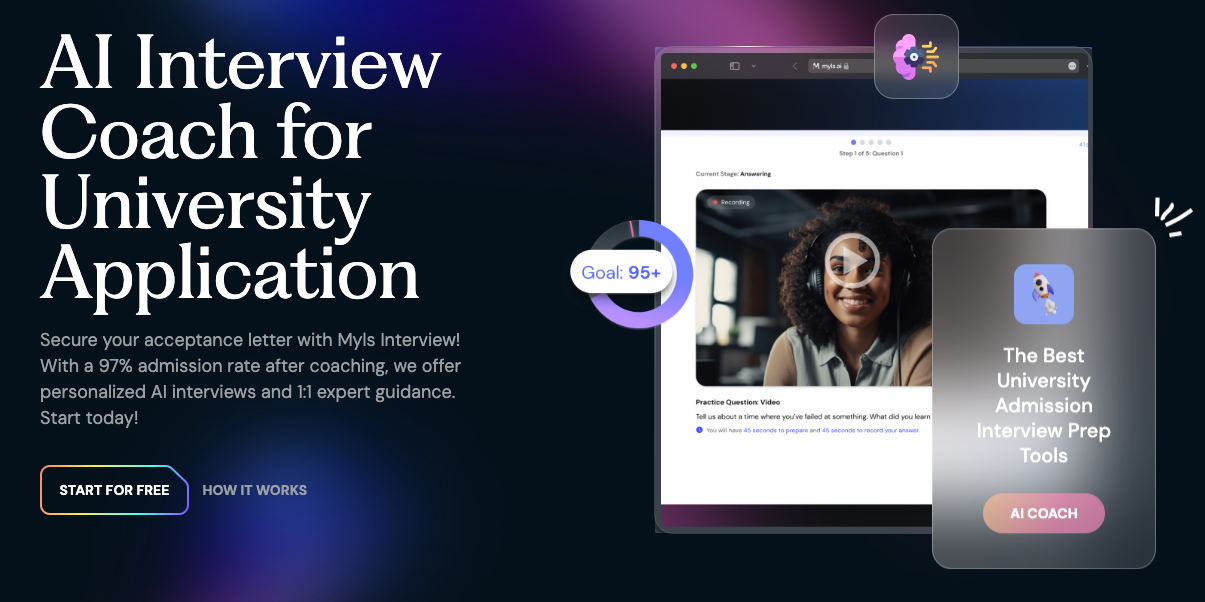McMaster Arts & Science Supplementary Application Guide: How to Stand Out in a Small, Competitive Program
McMaster’s Arts & Science program looks for more than grades. This guide breaks down the unique supplementary application—and how Myls Interview can help you express who you are.

Why the Supplementary Application Matters
McMaster University’s Arts & Science program is one of the most selective undergraduate programs in Canada—and also one of the smallest. With only around 70–75 spots available each year, applicants are evaluated not just on academic performance but also on their fit with the program’s interdisciplinary, critical-thinking focus.
That’s where the supplementary application comes in. This is your chance to show the admissions committee how you think, what drives you, and why you're an ideal fit for a program that values curiosity, analysis, and communication across disciplines.
This guide will help you break down what the McMaster's supplementary application looks like, how to approach each component, and what McMaster is really looking for in its future Arts & Sci students.
What’s Included in the McMaster Arts & Science Supplementary Application
You must complete the supplementary application through the McMaster admissions portal after applying on OUAC. The typical components include:
- 3–5 short written questions (approximately 150–300 words each)
- Some versions may include a video response or optional creativity-based prompt (e.g., upload a piece of work that reflects your thinking or communication style)
- Questions often vary from year to year and are designed to be reflective, not academic
Sample Questions from Previous Years
While McMaster doesn’t publish exact questions in advance, here are examples of the types of prompts students have reported:
- Tell us about a time you changed your mind. What led to your shift in perspective?
- Describe a concept, idea, or subject that fascinates you. Why?
- If you could have a conversation with any thinker (past or present), who would it be and what would you ask?
- What does “interdisciplinary thinking” mean to you, and why is it valuable?
These questions are meant to assess your intellectual curiosity, flexibility, and originality—not just academic knowledge.
What McMaster Arts & Science Is Looking For
1. Interdisciplinary Thinkers
The program blends the arts, humanities, and sciences, so students should demonstrate a genuine interest in crossing subject boundaries and connecting big ideas.
2. Originality and Insight
There are no “right answers” in the Arts & Sci application. Instead, the admissions committee wants to see how you think—how you approach a question, unpack a concept, and communicate your perspective.
3. Self-Awareness
Reflections on learning, identity, or change are often more valuable than a polished list of accomplishments. Your ability to think critically about yourself and your experiences is key.
4. Written Clarity and Creativity
Even though it’s not an English course, how you write matters. Use clear, thoughtful language. Avoid generic or overly academic tones. Be real, reflective, and focused.
How to Approach Your Responses
Read the questions carefully
Some prompts are open-ended, while others require you to reflect on a personal experience. Tailor your tone and approach based on what the question is actually asking.
Use specific examples
Even abstract prompts benefit from real moments. If you’re asked about curiosity, talk about a book, question, or topic that kept you up researching at 2am.
Think out loud—then revise
Start by journaling your thoughts freely, then refine your response into a focused piece. Often your best ideas appear mid-sentence when you’re writing informally.
Keep it personal, not performative
You’re not trying to sound like a philosopher or scholar—you’re trying to sound like yourself: someone thoughtful, curious, and ready for interdisciplinary learning.
Common Mistakes to Avoid
- Writing responses that feel too polished or insincere
- Giving generic answers without specific details
- Overusing quotes, references, or external sources
- Treating the supplementary app like an afterthought
- Ignoring the interdisciplinary nature of the program
How Myls Interview Can Help You Succeed

At Myls Interview, we specialize in helping students succeed in selective, thought-driven programs like McMaster Arts & Science. This isn’t just about grammar and formatting—it’s about finding your voice and using it to say something real.
Our team of expert coaches helps you:
- Interpret each question thoughtfully—so you know what kind of response they’re looking for
- Brainstorm compelling, honest answers—that reflect your interests and personality
- Structure and refine your writing—so it reads clearly without losing your voice
- Explore deeper themes in your responses—to bring out nuance and originality
- Practice mock video interviews, written essays responses or creative uploads—so you can communicate confidently across formats
We help students who are naturally reflective—but may not be sure how to express it under pressure. The result? Applications that are not only well-written, but deeply personal and intellectually engaging.
Sign up for free with Myls Interview and start building an application that reflects the real you—curious, capable, and ready for something different.




